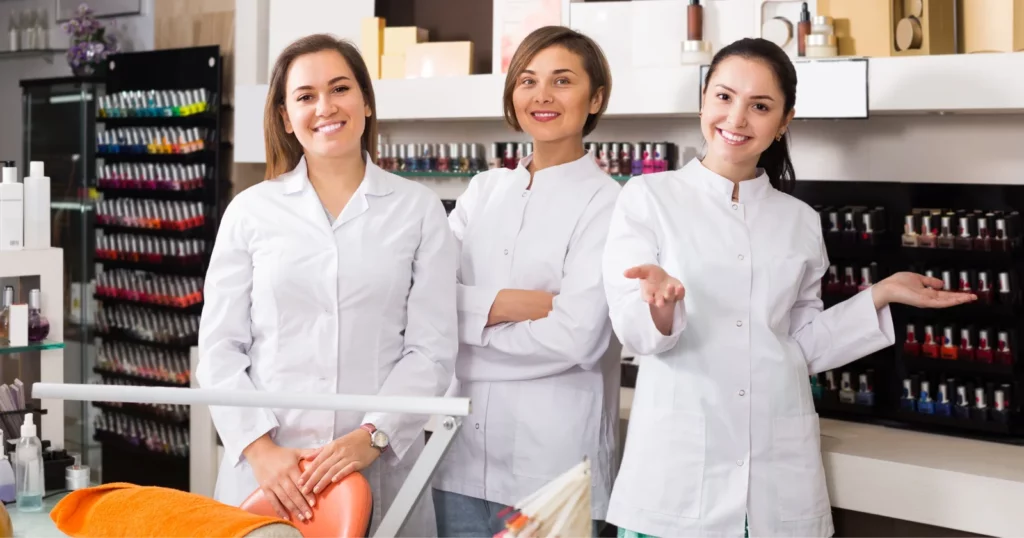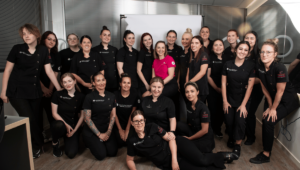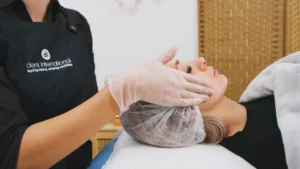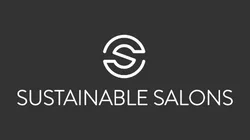The beauty industry is booming, and those with an interest or experience in providing beauty services might be interested in taking advantage and becoming their own boss.
Whether considering a brick-and-mortar setup or a mobile service where you travel to meet clients, there are many avenues for your beauty business to take. And with the right qualifications and preparations, learning how to start a beauty business is surprisingly straightforward.
Today, we explore the types of beauty businesses and services, the steps to start one, and why the right qualifications can guarantee success.
How to start a beauty business: choose your location
One of the main advantages of starting a beauty business is how flexible your work environment can be. With options to work from home, have a mobile service, or lease or buy a salon space, it’s a business that adapts to your needs and abilities.
Aside from the usual things you need to launch a business, such as insurance, permits, and training, each option has factors to consider. Let’s explore.
Starting a beauty business from home
You have the space to provide treatments and a passion for the industry— you’re halfway there. So, what else is needed to start a beauty business at home?
- A clean, comfortable, and quiet space to work, fitted out to the standards of a professional salon.
- The correct equipment and products to conduct services professionally.
- A commitment to meeting health and safety standards and providing a hygienic space for customers.
- Relevant software and electronics (POS machines, booking agents, etc.).
- A marketing plan that advertises your business, its services, and where you offer them.
How to start a mobile beauty business
As one of the cheaper options, learning how to start a mobile beauty business requires no permanent setup. However, due to the portable nature of your business, there’s a lot more to consider.
- Ensure you have suitable transport to travel to customers and transport your equipment.
- Factoring in additional costs and equipment, like transport costs and how you’ll perform services on the go.
- All relevant equipment and products are on hand, as you’ll be working out of your vehicle.
- Payment options, including the ability to accept portable POS systems, direct deposits, or cash.
- A marketing plan that spreads word of your business and how far you travel to perform beauty services.
Leasing or buying a property
Hoping to become a salon owner with your newly acquired Diploma of Salon Management [SHB50216]? Leasing or renting a space to start a brick-and-mortar salon is a popular avenue, but one that comes with higher costs and risks. Here’s what you need to know:
- Find a suitable rental listing that suits your beauty business’s services. For example, a salon with a wash basin and plumbing already connected. Otherwise, paying for refurbishments may be possible.
- Be able to prove a consistent income to gain acceptance for the property.
- Consider the length of the lease and whether it will sustain your business for the proposed term.
- Furnishings, equipment, and products that will allow you to provide your services comfortably and professionally.
What’s the best beauty business to start?
With some insight into where you’ll run your salon, you’ll now want to think about the services you’ll offer. Some salons provide a range of beauty and hair services from one location, and others focus on specific treatments.
So, what’s the best beauty business to start? Here are a few ideas that work just about anywhere to inspire you.
- Barbering and hairdressing. Love to cut hair for a living? This business caters to men, women, adults, and children, offering cuts, styling, colours, and more. Specific qualifications — like the Business of Barbering, including a Diploma of Salon Management [SBH50216] and Certificate III in Barbering [ SHB30516] — are ideal for these businesses.
- Eyelash extensions. As one of the biggest makeup trends, some beauty businesses offer this niche service alone with great success.
- Nail salon. Manicures, pedicures, gel polish, foot massage, and more. There are countless services you can perform at, as a nail technician.
- Skincare. Providing skincare as an esthetician or beauty therapist gives you broader scope to offer customers, including masks, peels, facials, and other treatments.
- Makeup artistry. Professional makeup artists help clients look their best for weddings, birthdays, graduation, and other special events.
- Hair removal. Waxing, IPL, electrolysis, and brow shaping are a few options for a hair removal beauty business.
Can you start a beauty business with little money?
Have grand plans to get started but are a bit cash poor? It doesn’t necessarily mean you have to put your dreams on hold. Those beginning their business without a lot of start-up funds might consider working from home at first to reduce some costs before they make plans to rent a space.
Generally, though, you can expect some basic expenses when starting a beauty business, regardless of where you set it up. I recommend a minimum investment of $10,000 to $20,000 to meet the necessary standards and regulations. Furthermore, the services you intend to offer will also impact the required investment.
A few things to consider
You have a clear plan in place of where and how you’ll run your business, but there are a few more steps to cover first. Consider these factors before starting a beauty business from home — or anywhere else — to give yourself a better chance at success.
- The official stuff
Permits, licenses, and registrations are all part of starting, running, and growing a business. Each state has different requirements, and each type of business license has its own conditions and rules. Check out the Australian Business Licence and Information Service’s website for tailored information on your beauty business requirements. - Insuring your business
Regardless of your work environment, you’ll want insurance to protect you and your customers. You can purchase insurance to safeguard your salon and equipment from theft and damage, and cover you for professional and public liability. - Creating a business plan
Any successful business starts with a plan, and your new salon is no different. These outline your salon’s growth plan for the next five years, going into specifics like target market, financials, marketing, and business goals. - Earning the relevant qualifications
A formal qualification is necessary to work in the beauty industry. Planning to start a beauty business? Higher level qualifications — such as a Diploma of Salon Management [SHB50216] and Certificate III in Hairdressing [SHB30416] — give you a greater chance of success.
Taking the first steps toward your new business
Starting your own beauty business is exciting but requires careful thought and planning. Reach out to Demi International about taking the first steps towards owning a beauty business and what the right qualifications can do for you.







